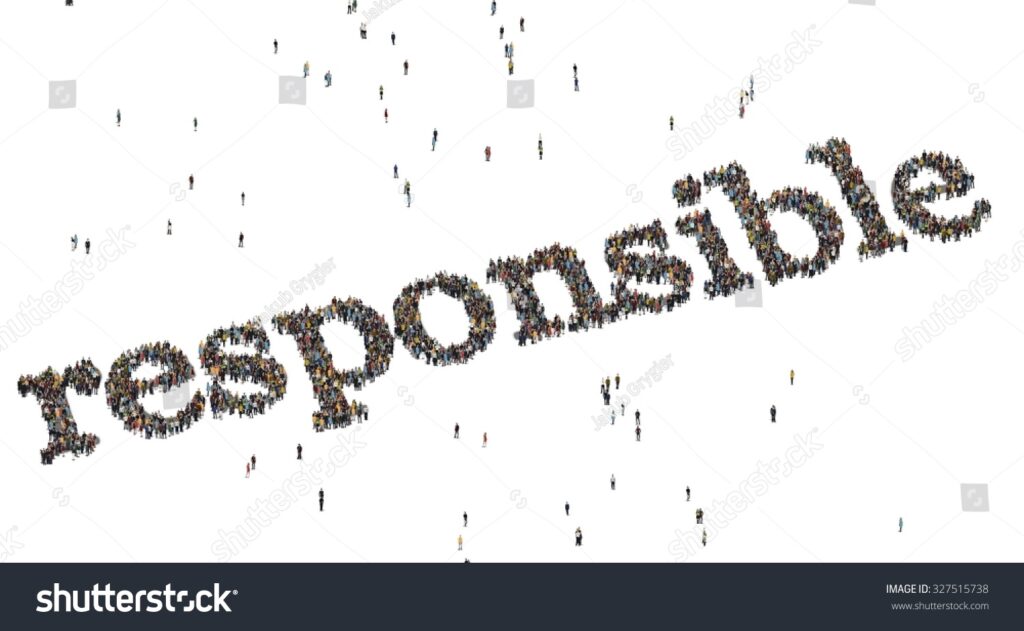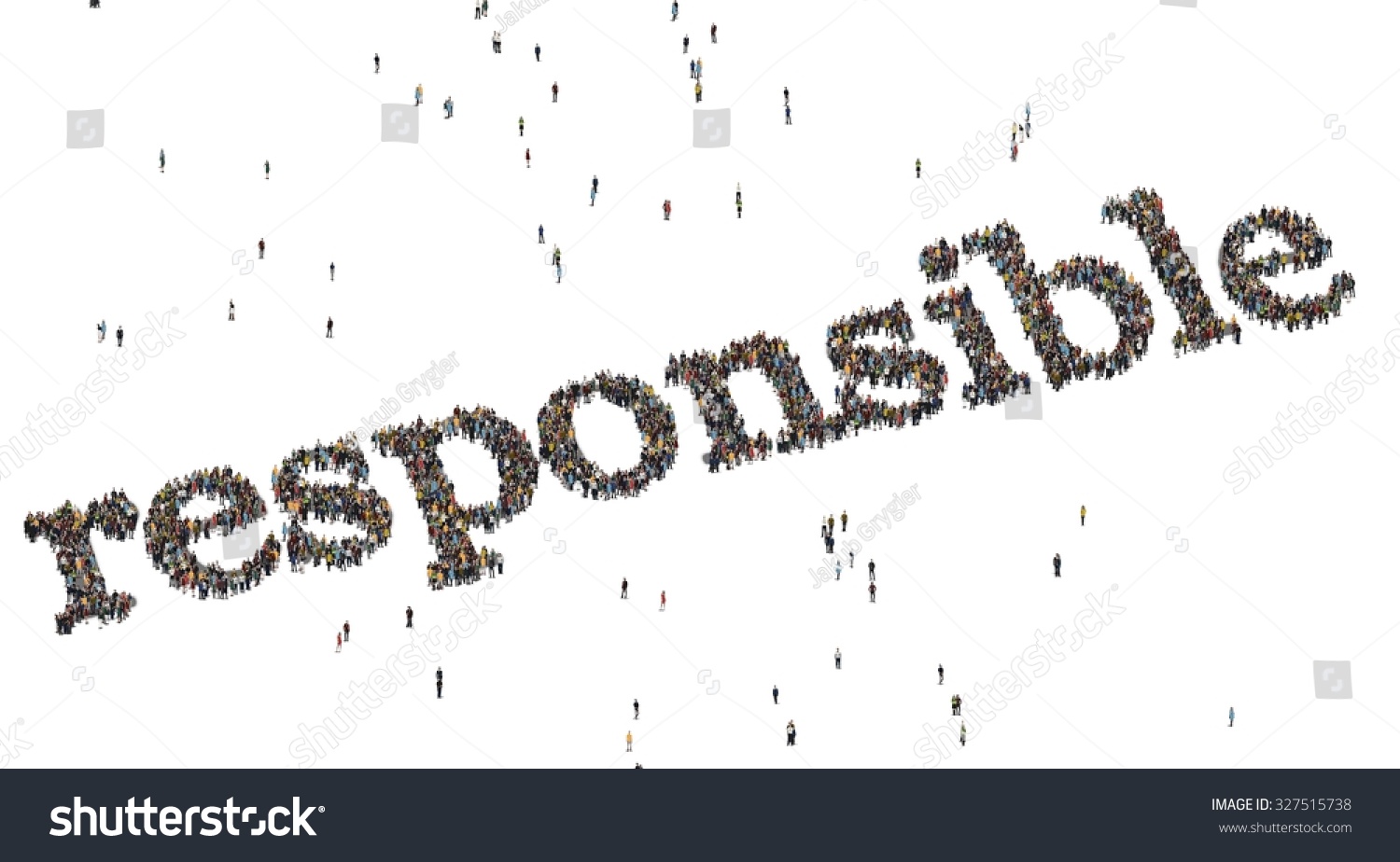
Responsible Me: Cultivating Personal Accountability for a Better Life
In an increasingly complex world, the concept of personal responsibility often gets overshadowed by blame games and external justifications. However, embracing a “responsible me” mentality is crucial for individual growth, strong relationships, and a thriving society. This article explores the profound impact of taking ownership of our actions, decisions, and attitudes, providing practical strategies for cultivating personal accountability and living a more fulfilling life.
Understanding Personal Responsibility
Personal responsibility is the willingness to accept accountability for our choices, behaviors, and the consequences that follow. It’s about acknowledging that we have control over our lives and that our actions directly impact our outcomes. It’s not about blaming external factors or making excuses; it’s about owning our part in every situation. A responsible me understands that even when circumstances are challenging, we still have the power to choose how we respond.
Many people find it easier to deflect blame onto others or external circumstances. This might provide temporary relief from discomfort, but it ultimately hinders personal growth and prevents us from learning from our mistakes. A responsible me, on the other hand, faces challenges head-on, learns from failures, and strives to improve.
The Opposite of Responsibility: Blame and Excuses
Understanding what personal responsibility *isn’t* is just as important as understanding what it is. Blaming others, making excuses, and playing the victim are all behaviors that actively undermine personal accountability. These behaviors prevent us from taking ownership of our lives and limit our potential for growth. When we consistently blame others, we relinquish our power to change our circumstances. A responsible me avoids these traps and focuses on what they can control.
The Benefits of Embracing a “Responsible Me” Mindset
The benefits of embracing a “responsible me” mindset are far-reaching and impact every aspect of our lives:
- Improved Relationships: Taking responsibility for our actions in relationships fosters trust, communication, and mutual respect. When we own our mistakes and apologize sincerely, we create space for healing and growth.
- Increased Self-Esteem: Knowing that we are capable of taking responsibility and handling challenges boosts our self-esteem and confidence. We develop a sense of agency and control over our lives.
- Enhanced Problem-Solving Skills: When we take responsibility for our problems, we are more likely to actively seek solutions. We become more resourceful and resilient in the face of adversity.
- Greater Personal Growth: Embracing a “responsible me” mentality allows us to learn from our mistakes and grow as individuals. We become more self-aware and develop a deeper understanding of ourselves.
- Increased Productivity and Success: Taking responsibility for our work and commitments leads to increased productivity and success. We become more reliable and dependable, earning the trust and respect of others.
- Reduced Stress and Anxiety: When we take ownership of our lives, we reduce stress and anxiety. We no longer feel like victims of circumstance, but rather active participants in shaping our own destinies.
Ultimately, cultivating a responsible me allows for a more fulfilling and meaningful existence.
Strategies for Cultivating Personal Responsibility
Cultivating personal responsibility is an ongoing process that requires conscious effort and commitment. Here are some practical strategies to help you embrace a “responsible me” mindset:
Practice Self-Awareness
The first step towards becoming more responsible is to become more self-aware. Pay attention to your thoughts, feelings, and behaviors. Identify patterns of blame, excuses, or victimhood. Ask yourself honest questions about your role in various situations. Journaling, meditation, and mindfulness practices can be helpful tools for increasing self-awareness. Recognizing your triggers and understanding your emotional responses are key to taking responsibility for your actions. [See also: Mindfulness Techniques for Stress Reduction]
Take Ownership of Your Actions
When you make a mistake, own it. Don’t try to deflect blame or make excuses. Acknowledge your role in the situation and apologize sincerely. Taking ownership of your actions demonstrates integrity and builds trust with others. It also allows you to learn from your mistakes and prevent them from happening again. Remember that a responsible me isn’t afraid to admit when they’re wrong.
Set Clear Goals and Commitments
Setting clear goals and commitments provides a framework for accountability. When you know what you want to achieve, you are more likely to take responsibility for your actions and work towards your goals. Break down large goals into smaller, more manageable steps. Track your progress and celebrate your successes. Holding yourself accountable to your goals is a powerful way to cultivate personal responsibility. A responsible me sets realistic goals and strives to achieve them.
Keep Your Promises
Keeping your promises is essential for building trust and demonstrating responsibility. When you make a commitment, follow through on it. If you are unable to fulfill a promise, communicate with the other party as soon as possible and explain the situation. Offering a sincere apology and a plan for making amends can help maintain trust and demonstrate your commitment to responsibility. A responsible me values their word and keeps their commitments.
Learn from Your Mistakes
Everyone makes mistakes. The key is to learn from them and use them as opportunities for growth. Analyze your mistakes and identify the factors that contributed to them. Develop a plan for preventing similar mistakes in the future. Don’t dwell on your failures; focus on what you can learn from them. A responsible me sees mistakes as learning opportunities.
Practice Active Listening
Active listening is a crucial skill for building strong relationships and fostering personal responsibility. When you actively listen to others, you are more likely to understand their perspectives and respond in a thoughtful and responsible manner. Avoid interrupting or judging. Focus on understanding the other person’s point of view. Active listening promotes empathy and strengthens communication, leading to more responsible interactions. The responsible me listens to understand, not just to reply.
Embrace Consequences
Every action has consequences, both positive and negative. Embracing the consequences of your actions is a key aspect of personal responsibility. When you experience negative consequences, don’t try to avoid them or blame others. Accept responsibility for your role in the situation and learn from the experience. Similarly, celebrate the positive consequences of your responsible actions. A responsible me accepts the consequences of their choices.
Seek Feedback
Seeking feedback from others can provide valuable insights into your behavior and help you identify areas for improvement. Ask trusted friends, family members, or colleagues for honest feedback. Be open to criticism and use it as an opportunity to grow. A responsible me is open to feedback and uses it to improve.
Challenge Your Limiting Beliefs
Sometimes, our limiting beliefs can hold us back from taking responsibility. Challenge your negative thoughts and beliefs about yourself and your abilities. Replace them with more positive and empowering beliefs. Believe in your ability to take control of your life and create positive change. A responsible me challenges limiting beliefs and embraces their potential.
Practice Gratitude
Practicing gratitude can shift your focus from what’s lacking in your life to what you already have. This can lead to a more positive and responsible outlook. Take time each day to appreciate the good things in your life. Express gratitude to others for their support and kindness. A responsible me appreciates what they have and expresses gratitude.
The Impact of a “Responsible Me” on Society
The impact of individuals embracing a “responsible me” mentality extends far beyond personal benefits. When individuals take responsibility for their actions, it creates a ripple effect that benefits families, communities, and society as a whole. A society composed of responsible individuals is more likely to be characterized by trust, cooperation, and progress. [See also: The Importance of Civic Engagement]
Here are some ways in which a “responsible me” contributes to a better society:
- Stronger Communities: When individuals take responsibility for their communities, they are more likely to volunteer, participate in civic activities, and contribute to the common good.
- Ethical Leadership: Responsible leaders make decisions that are in the best interests of their constituents and stakeholders. They are accountable for their actions and transparent in their dealings.
- Sustainable Practices: A responsible me takes responsibility for the environment and adopts sustainable practices to protect the planet for future generations.
- Reduced Crime and Violence: When individuals take responsibility for their actions, they are less likely to engage in criminal behavior.
- Increased Social Justice: A responsible me advocates for social justice and equality for all members of society.
Conclusion: Embracing the Power of Personal Accountability
Embracing a “responsible me” mentality is a transformative journey that leads to personal growth, stronger relationships, and a more fulfilling life. By taking ownership of our actions, decisions, and attitudes, we empower ourselves to create positive change in our lives and in the world around us. Cultivating personal accountability is not always easy, but the rewards are well worth the effort. Commit to practicing the strategies outlined in this article and experience the profound impact of embracing the power of personal responsibility. Remember, the journey to becoming a responsible me starts with a single step.

